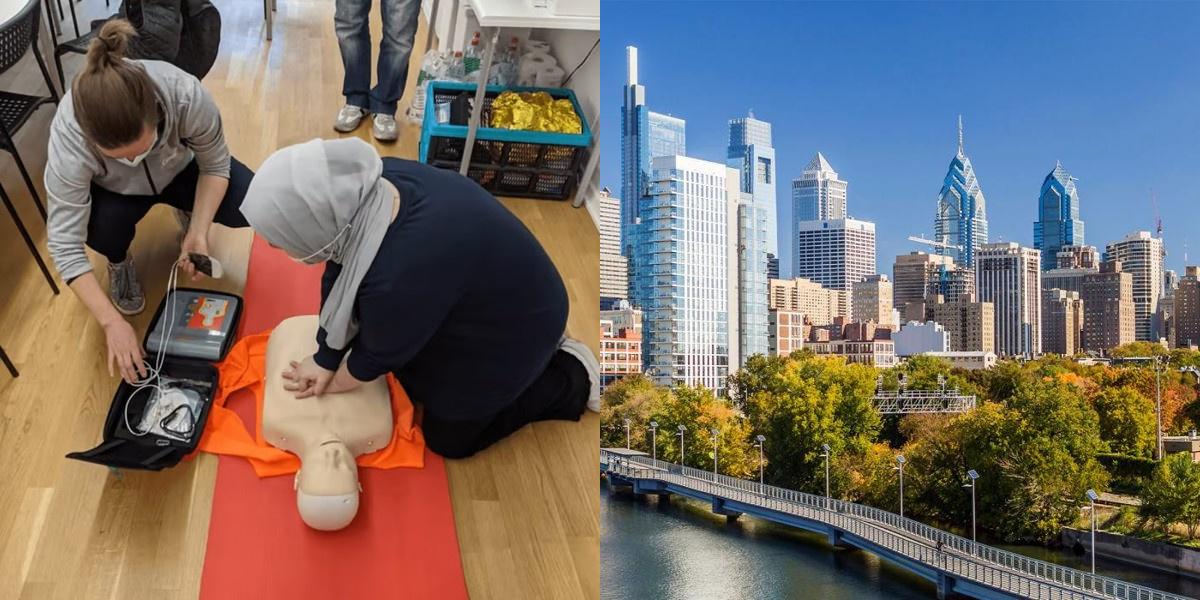How to Become a Paramedic in Pennsylvania (2025)

If you’re looking for a fast-paced, high-impact healthcare career, becoming a paramedic in Pennsylvania could be your perfect fit. Paramedics are trained to save lives in emergencies, working at the front lines of healthcare across hospitals, fire departments, and EMS agencies.
According to the Bureau of Labor Statistics (BLS), paramedics in Pennsylvania earn an average of $59,510 per year ($28.61 per hour). With job demand expected to grow and rewarding career advancement options, now is an excellent time to join this vital profession.
Key Points
- Paramedics in Pennsylvania provide life-saving emergency care for trauma, cardiac arrest, and medical crises.
- Certification requires passing the NREMT Paramedic Exam and obtaining a state license through the Pennsylvania Department of Health.
- Training typically takes 1–2 years, including EMT experience and a state-approved paramedic program.
- In Pennsylvania, paramedic salary is $55,990 per year.
How to Get a Job as a Paramedic in Pennsylvania
Once licensed, paramedics can explore a wide range of employers across the state. To improve your job prospects:
- Build a professional resume – Highlight EMT and paramedic experience, certifications, and clinical skills.
- Network with EMS professionals – Attend events or join organizations like the Pennsylvania Emergency Health Services Council (PEHSC) or NAEMT.
- Apply to EMS agencies and hospitals – Many counties, hospitals, and private ambulance services hire paramedics year-round.
- Continue specialized training – Certifications like Advanced Cardiac Life Support (ACLS) and Pediatric Advanced Life Support (PALS) can help you qualify for advanced roles.
Use MyNextMove to find paramedic jobs near you in Pennsylvania.
Career Paths and Opportunities after Becoming a Paramedic
Becoming a paramedic can lead to a variety of career directions, including:
- Advanced Care Paramedic (Critical Care Transport)
- EMS Supervisor or Operations Director
- Flight Paramedic (Air Rescue)
- Emergency Department Technician
- Paramedic Educator or Instructor
- Disaster Response or Tactical Paramedic
With additional training, many paramedics go on to become registered nurses (RNs), physician assistants (PAs), or fire captains.
Frequently Asked Questions
How long does it take to become a paramedic in PA?
Training typically takes 1–2 years, including EMT certification, classroom instruction, and clinical rotations.
How much do paramedics make in PA?
Paramedics in Pennsylvania earn an average of $59,510 per year ($28.61/hour) according to BLS. Experienced paramedics and flight medics can earn $65,000–$75,000+ annually, especially in urban or specialized settings.
What is the quickest way to become a paramedic?
The fastest route is completing an accelerated paramedic program (around 12 months) after obtaining your EMT license, followed by the NREMT exam and state licensure.
Final Thoughts
Becoming a paramedic in Pennsylvania is one of the most rewarding paths in healthcare offering daily challenges, teamwork, and the opportunity to save lives. With strong demand, excellent training options, and competitive salaries, now is a great time to join the EMS field.
Looking for a better fit? These other articles could be more in line with your expectations if this one isn't precisely what you had in mind:





